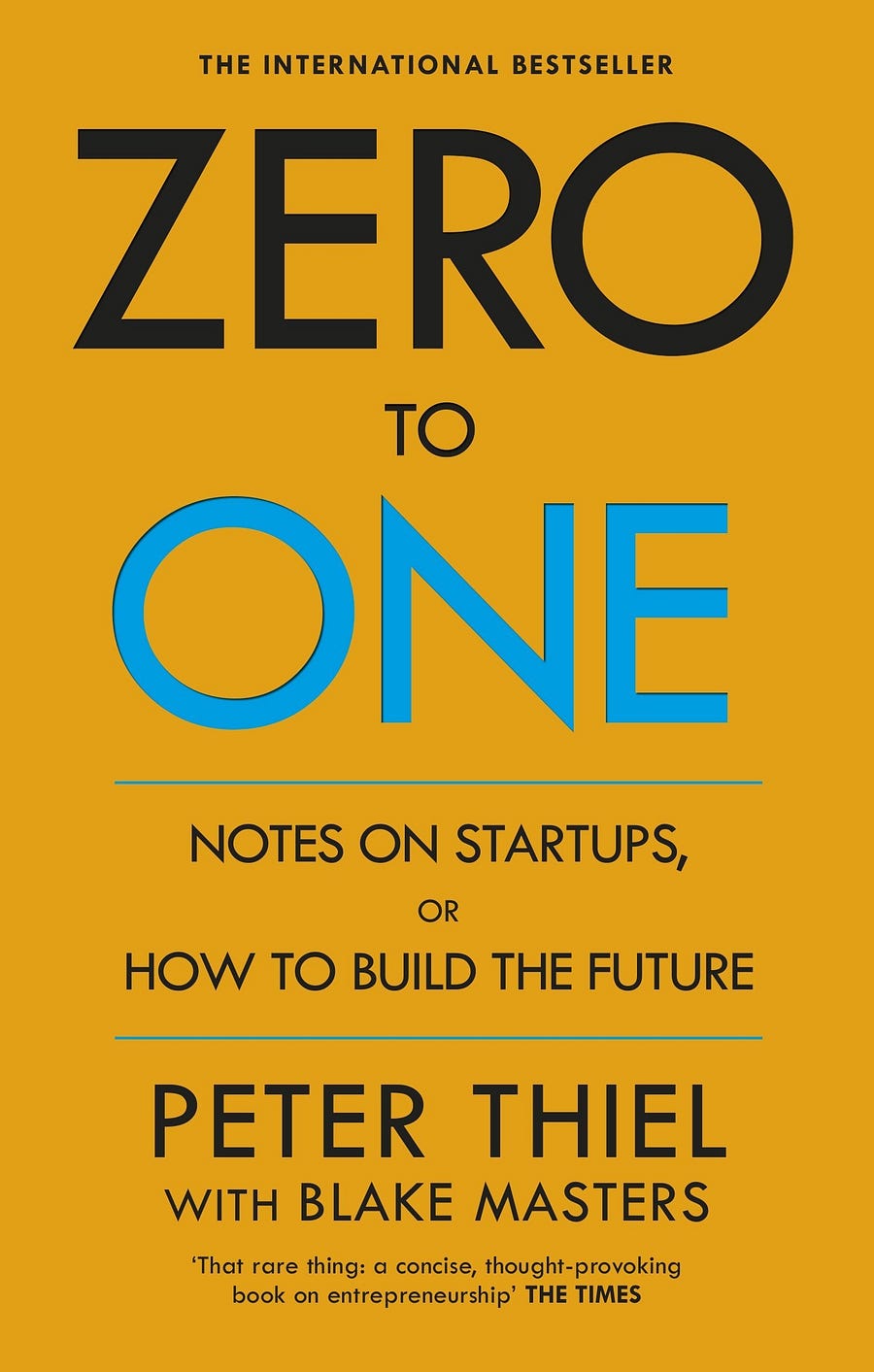Shift Your Startup From 0 To 1
Zero To One Book Summary

“Zero to One” is a book written by legendary entrepreneur and investor, Peter Thiel.
Through this book, Peter shares his knowledge on how to shift your startup from zero to one. He also encourages companies to think outside the box and build monopolies based on innovation rather than copying others.
Peter Thiel is a highly successful entrepreneur and a venture capitalist. He is one of the co-founders of PayPal, alongside Elon Musk and other successful business people.
Based on his successful journey of entrepreneurship, he wrote this well-known “Zero to One” book that teaches you how to approach business and what you can do to build your startup’s own future and shape the future of the world in the process.
The future is often one of the most fascinating topics for humans. The majority of the growth we observe on a daily basis is horizontal. With this form of development, ideas and technologies are transmitted from one to many or from 1 to n.
As an example, consider how Apple made computers more accessible to the general public with the Apple II.
To start from scratch and develop the technology or idea, vertical progress is necessary. When Apple introduced the iPhone in 2007 and completely altered how we see and use phones, they too accomplished this.
You must go from zero to one rather than from one to many if you want to develop a business that will significantly impact the world. Only by critically challenging many of your presumptions about the present you will be able to do that.
Horizontal and Vertical Progress.
Peter Thiel outlines two types of progress which are horizontal and vertical progress.
Horizontal progress involves extending current concepts and inventions. Globalization is one of the factors promoting horizontal progress. More individuals may now obtain ideas thanks to globalization.
Horizontal progress, according to Peter Thiel, is the progress from 1 to n. Vertical progress, by comparison, is an increment from zero to one. Vertical progress, in contrast, requires entirely unique inventions, such as something that doesn’t currently exist but has more upside potential.
“Every moment in business happens only once. The next Bill Gates will not build an operating system. The next Larry Page or Sergey Brin won’t make a search engine. And the next Mark Zuckerberg won’t create a social network. If you are copying these guys, you aren’t learning from them.” — Peter Thiel
Although significant changes will result from globalization, Peter argues that technology will have a more significant influence on our lives. He believes that using outdated methods in a globalized context can only result in destruction. Peter says that using technological innovation to alter the future is preferable.
Peter uses air pollution in China as an example. As a result of globalization, China has evolved into a trading giant. Therefore, China is polluting on a mass scale. Globalizing outdated concepts is not the best strategy for influencing the future.
On earth, resources are scarce. As a result, in the age of globalization, technology is one of the most important tools for protecting our resources.
Napoleon Hill's book Think and Grow Rich explores the psychological influence of thought and the brain in the process…suntechit.com.au
Startups are the Gold Standard of Innovation.
The benchmark for innovation in the corporate sector is startups. A startup, in Peter’s words, is the biggest group of individuals that you can convince to support your vision for a new future.
“Making small changes to things that already exist might lead you to a local maximum, but it won’t help you find the global maximum. You could build the best version of an app that lets people order toilet paper from their iPhone. But iteration without a bold plan won’t take you from 0 to 1.” — Peter Thiel
No Vision! No Growth!
A business can never grow from zero to one if the founders lack vision. Microsoft, Paypal, and eBay are a few examples of successful businesses created with the future in mind. Monopolists expand the number of choices available for consumers by creating brand-new product categories. It’s the weirdness that enables leaders to create an ambitious vision for their company. Microsoft had a giant monopoly in operating systems. Through a novel strategy, Apple’s iOS and Google’s Android simultaneously developed and surpassed operating system supremacy.
To create a great, if slightly irrational, vision for the future — exactly what businesses require to get from zero to one.

Why Monopolies Are Effective
Monopolies are crucial for innovation because they force rival companies to develop really novel solutions. For instance, if a business wants to compete in the current search engine industry, it must develop a search engine that is better than Google.
04 Traits that aid in a company’s monopolies
- Technological Advantage
- Network Effects
- Economies of Scale
- Strong Branding
Building a Successful Business Takes Time.
A successful monopoly takes years to develop. Even if your startup appears to be succeeding, it may take years before it starts to turn a profit. Don’t give up if you are not yet making money, though. Instead, think about the value your business provides. When thinking about the company’s long-term earnings, this value is what matters most.
Tech Firms Are Frequently Monarchies
Peter explains how digital corporations may be monarchs in addition to being better at creating monopolies. Given that there is only one person developing the company with the vision, Peter describes them as monarchies. Peter mentions Elon Musk and Tesla as examples of successful entrepreneurs. Unlike in other businesses, these owners have the authority to make important choices that demand a high level of commitment from the rest of the organization.
You can read more case studies on https://suntechit.com.au/



Comments
Post a Comment